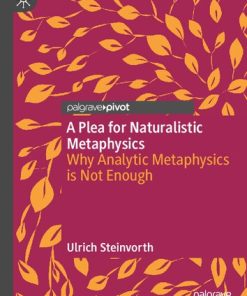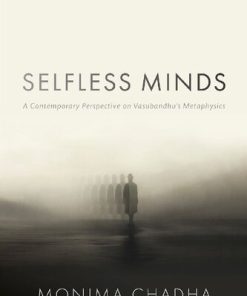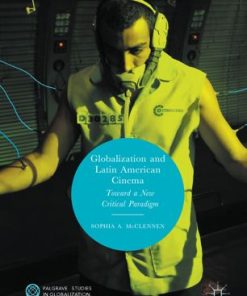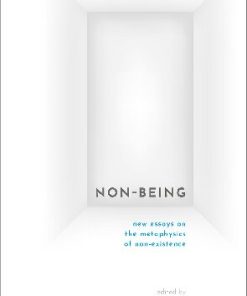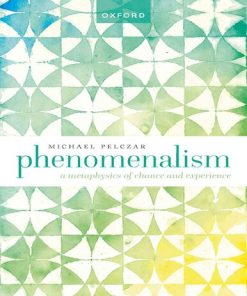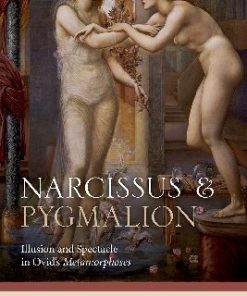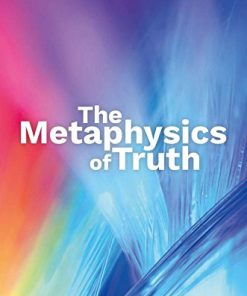Metaphysics Sophistry and Illusion Toward a Widespread Non Factualism 1st Edition by Mark Balaguer 0192638847 9780192638847
$50.00 Original price was: $50.00.$25.00Current price is: $25.00.
Metaphysics, Sophistry, and Illusion: Toward a Widespread Non-Factualism 1st Edition by Mark Balaguer – Ebook PDF Instant Download/DeliveryISBN: 0192638847, 9780192638847
Full download Metaphysics, Sophistry, and Illusion: Toward a Widespread Non-Factualism 1st Edition after payment.
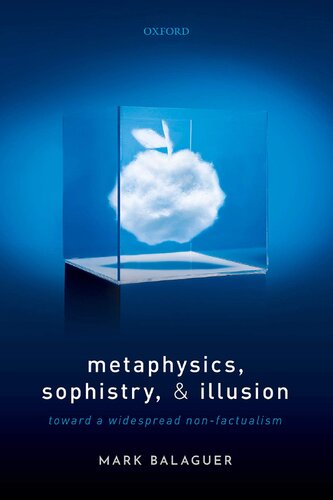
Product details:
ISBN-10 : 0192638847
ISBN-13 : 9780192638847
Author : Mark Balaguer
Metaphysics, Sophistry, and Illusion does two things. First, it introduces a novel kind of non-factualist view, and argues that we should endorse views of this kind in connection with a wide class of metaphysical questions, most notably, the abstract-object question and the composite-object question. (More specifically, Mark Balaguer argues that there’s no fact of the matter whether there are any such things as abstract objects or composite objects–or material objects of any other kind.) Second, Metaphysics, Sophistry, and Illusion explains how these non-factualist views fit into a general anti-metaphysical view called neo-positivism, and explains how we could argue that neo-positivism is true. Neo-positivism is the view that every metaphysical question decomposes into some subquestions–call them Q1, Q2, Q3, etc.–such that, for each of these subquestions, one of the following three anti-metaphysical views is true of it: non-factualism, or scientism, or metaphysically innocent modal-truth-ism. These three views can be defined (very roughly) as follows: non-factualism about a question Q is the view that there’s no fact of the matter about the answer to Q. Scientism about Q is the view that Q is an ordinary empirical-scientific question about some contingent aspect of physical reality, and Q can’t be settled with an a priori philosophical argument. And metaphysically innocent modal-truth-ism about Q is the view that Q asks about the truth value of a modal sentence that’s metaphysically innocent in the sense that it doesn’t say anything about reality and, if it’s true, isn’t made true by reality
Metaphysics, Sophistry, and Illusion: Toward a Widespread Non-Factualism 1st Table of contents:
1. Introduction
1.1 A Synopsis of This Book
1.2 The Ways in Which My View Is and Isn’t Anti-Metaphysical
1.3 What I Say Here Isn’t Really True
Part I Non-Factualism
2. Against Trivialism and Mere-Verbalism (and Toward a Better Understanding of the Kind of Non-Factualism Argued for in This Book)
2.1 Opening Remarks
2.2 Two (or Three) Kinds of Anti-Metaphysicalism
2.3 Non-Mere-Verbalist Non-Factualism
2.4 Some General Remarks about Metaphysical Problems
2.5 Against Metametaphysical Verbalism
2.6 A Recipe for Finding Non-Verbal Debates
2.7 Against Actual-Literature Verbalism
2.8 Why Trivialism Without Metametaphysical Verbalism Is Metaphysically Uninteresting
2.9 Two Kinds of Non-Factualism
3. How to Be a Fictionalist about Numbers and Tables and Just about Anything Else
3.1 Opening Remarks
3.2 The Mathematics-Based Argument Against Non-Factualism
3.3 A Theory of Objective Fictionalistic Mathematical Correctness
3.4 FBC-Fictionalism to the Rescue
3.5 Do FBC-Fictionalists Unwittingly Commit to Abstract Objects?
3.6 Generalizing the Fictionalist Strategy (or Fictionalist Views of Other Kinds of Objects)
3.7 The Response to the Objection to Non-Factualism
3.8 A Recipe for Responding to Section-2.4-Style Arguments
3.9 A Possible Slight Alteration to What I’ve Said Here
3.10 A Worry and a Response
4. Non-Factualism about Composite Objects (or Why There’s No Fact of the Matter Whether Any Material Objects Exist)
4.1 Opening Remarks
4.2 Is the Composition Question Trivial?
4.3 Against Necessitarianism
4.4 Against Contingentism
4.5 The Law of Excluded Middle
4.6 From Tables to Composite Objects
4.7 Pushing the Argument Further
4.8 Un-Weird-Ing the View (at Least a Little)
5. Non-Factualism about Abstract Objects
5.1 Opening Remarks
5.2 The Argument for Non-Factualism_ Part 1
5.3 The Argument for Non-Factualism_ Part 2
5.4 Against Necessitarian Platonism and Anti-Platonism
5.5 Objections and Responses
6. Modal Nothingism
6.1 Opening Remarks
6.2 Modal Primitivism, Analyticity, and the Lingering Truthmaking Question
6.3 What Is Modal Nothingism?
6.4 How Modal Nothingism Could Be True (and How TMW Could Be False)
6.5 The Literali’s Argument for
6.6 The Argument for Modal Nothingism
6.7 The Possible-Worlds Analysis and Modal Error Theory
6.8 Modal Literalism and Semantic Neutrality
6.9 Logic
6.10 The Counterfactuals of Chapter 3 Revisited
6.11 Metaphysical Possibility and Necessity
Part II Neo-Positivism
7. What Is Neo-Positivism and How Could We Argue for It?
7.1 Opening Remarks
7.2 What Is Neo-Positivism?
7.3 Why Neo-Positivism Isn’t Self-Refuting
7.4 How to Argue for Neo-Positivism_ The General Plan
7.5 Step 1 of the Neo-Positivist Argument: How to Decompose a Metaphysical Question
7.6 Step 2 of the Neo-Positivist Argument
7.7 Appendix on Scientism
8. Conceptual Analysis
8.1 Opening Remarks
8.2 What Is a Concept?
8.3 Three Metaphilosophical Views
8.4 Why the Decompositional View Is False
8.5 A Quick Argument for the Relevance of Facts about the Folk
8.6 Pruning the List of Fact Types that Hybrid Theorists Might Think Are Relevant
8.7 Why the Ordinary-Language View Is Correct
8.8 Scientism about Conceptual-Analysis Questions
8.9 Five Worries
8.10 Why It Wouldn’t Undermine Neo-Positivism if the Hybrid View Were Right
8.11 If Concepts Were Mental Objects …
9. Widespread Non-Factualism
9.1 Opening Remarks
9.2 Some Examples of Non-Factualism
9.3 Some Examples of Scientism
9.4 Neo-Positivist Humility
10. A Worldview
People also search for Metaphysics, Sophistry, and Illusion: Toward a Widespread Non-Factualism 1st:
metaphysics sophistry and illusion
sophistry and illusion
metaphysics and manifestation
sophistry and philosophy
metaphysical illusion
Tags: Metaphysics, Sophistry, Illusion, Widespread, Non Factualism, Mark Balaguer
You may also like…
Society
Religious Minorities in Non-Secular Middle Eastern and North African States 1st Edition Mark Tessler
Politics & Philosophy
Religion & Spirituality - Buddhism
Selfless Minds: A Contemporary Perspective on Vasubandhu’s Metaphysics 1st Edition Monima Chadha
Politics & Philosophy - Cultural
Politics & Philosophy - General & Miscellaneous Philosophy
Non-Being : New Essays on the Metaphysics of Nonexistence Sara Bernstein And Tyron Goldschmidt
Politics & Philosophy - Anthropology
The Actual and the Possible: Modality and Metaphysics in Modern Philosophy 1st Edition
Science (General) - Theories of Science
Phenomenalism: A Metaphysics of Chance and Experience 1st Edition Michael Pelczar
Uncategorized
Politics & Philosophy - Anthropology





